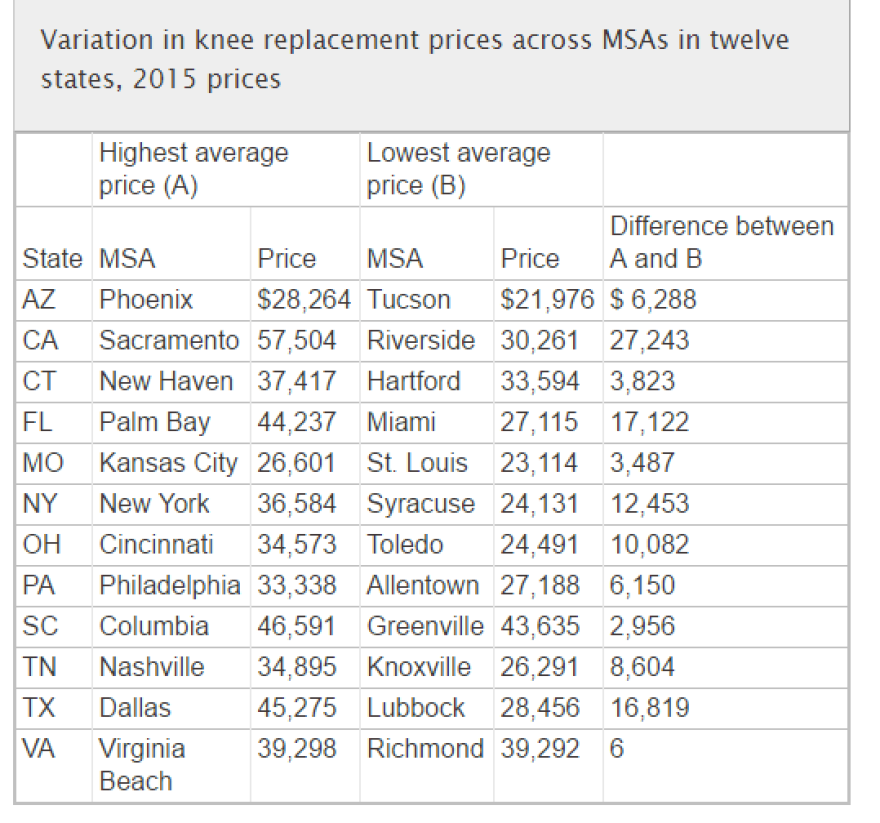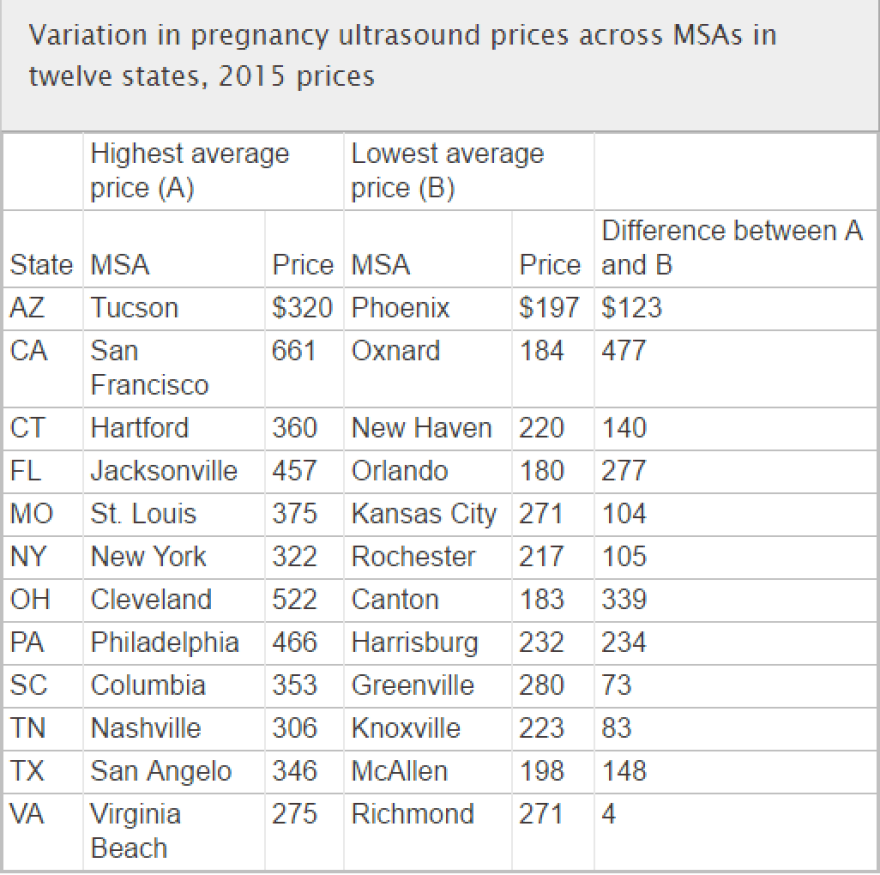Kansas City-area residents needing a knee replacement might find it worthwhile to drive to St. Louis.
That’s because the average price of the procedure in the KC area is $26,601. In the St. Louis area, it’s $23,114 – a $3,487 difference.
On the other hand, the average cost of an ultrasound in metro St. Louis is $375. That compares with $271 in metro Kansas City, a $74 difference.
The figures come from a newly released study that looked at variations in the commercial prices for scores of common medical services in 41 states and the District of Columbia. Unsurprisingly, the study published in the journal Health Affairs found a wide range of variations, both across states and within them.
Average prices for the medical services in Missouri and Kansas hovered around the national norm. In Kansas, they were 1.07 times the national average. In Missouri, the ratio was 0.98. Florida had the lowest ratio of the 41 states and D.C., 0.79; Alaska had the highest, 2.64.
The study’s conclusion: “Some of the variation may be justified by differences in wages or rent. However, the remaining variation is most likely due to differences in underlying market dynamics, such as varying market power, a lack of transparency, or the availability of alternative treatments.”
The study drew on a massive trove of commercial claims data from the Health Care Cost Institute, a non-profit funded by large national health insurers. (A notable omission: Blue Cross Blue Shield, which provides its own data.)

It’s no surprise that costs for medical services can vary wildly. Other studies have looked at geographical variations for Medicare patients. In 2014, for example, the Centers for Medicare & Medicaid Services released figures for hospital charges for the 100 most common inpatient procedures, and the disparities – even among hospitals within the same metropolitan area – were striking.
One reason for the price variations is consolidation among physicians and hospitals, which gives them greater leverage to negotiate higher prices with private insurers. But other factors, including regional differences in the cost of living, are at play as well.

David Slusky, a health economist at the University of Kansas, says regional differences in preferences for services, different state regulatory regimes and “idiosyncratic factors” in negotiations between health providers and insurers account for some of the variations.
“Since many regions have only a few players, one would expect the individual personalities and interests of those negotiating to create variations in prices,” he said in an email.
He also noted that most Americans are unwilling to travel to save money on a procedure. “Add to this that even if the price is lower elsewhere for those in network, for an individual the other location is out of network and therefore the price isn't lower in reality,” he said.
But those factors don’t explain the price variations within the same city, Slusky said. Rather, he pointed to “the almost complete lack of price transparency, where an insurer is often contractually bound by the provider to not disclose the price to the consumer until after the service has been rendered.”
As a result, consumers can’t “shop around” for the best prices, even if they’re so inclined. The problem is made worse, Slusky said, if the health providers are geographically near one another but in different networks.
Dan Margolies, editor of the Heartland Health Monitor team, is based at KCUR. You can reach him on Twitter @DanMargolies.



